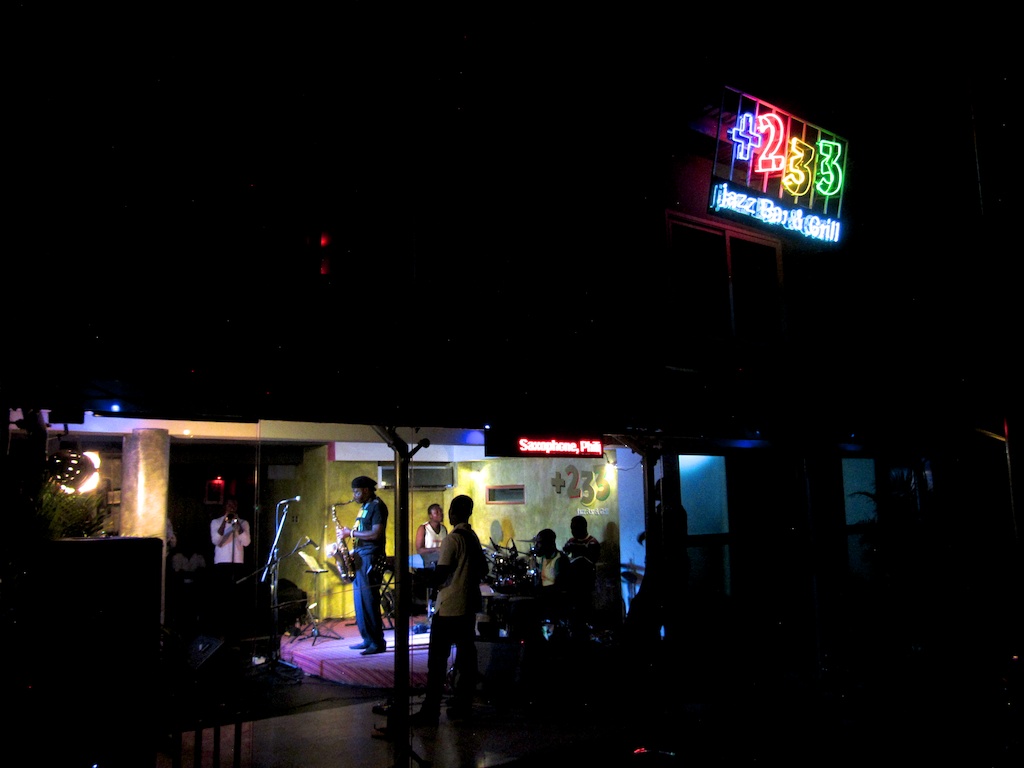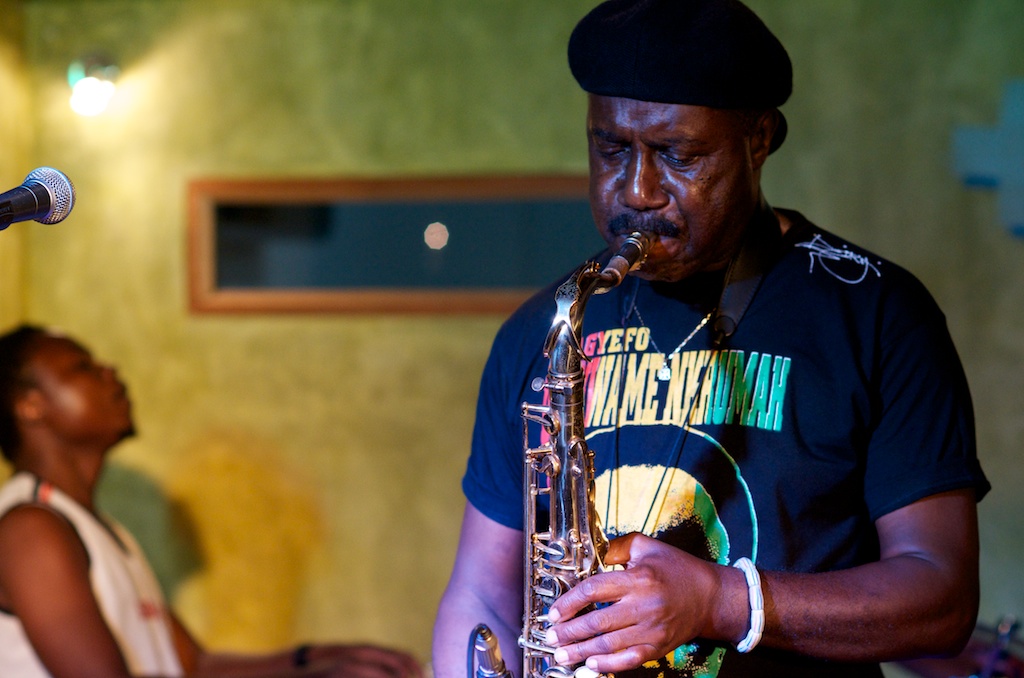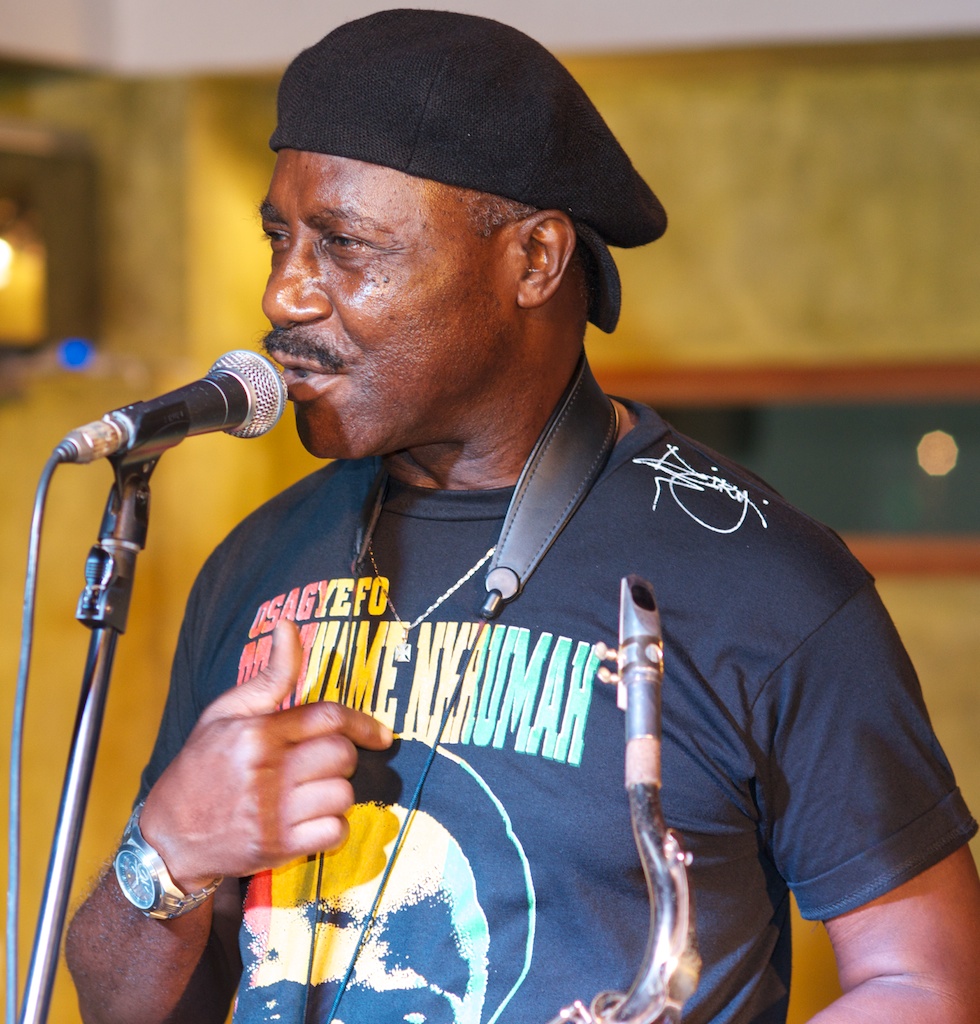Plenty jetlag on arrival in hot, happening Accra! But a quick plunge in the ocean, a plate of local fish, and a tall Star beer, and we were ready to go to work for Afropop's Hip Deep adventure in Ghana. Our first night, Benjamin Lebrave, creator of Akwaaba Music and now an Accra resident, was DJ-ing at Republic, a popular night spot for young movers and shakers. Normally DJs there spin the latest hiplife and Azonto tracks, but on this night the club was hosting a sale of vintage clothing and asked the DJs to dip into some vintage sounds. So we had the unlikely spectrum of a French-American, Paris-raised, white DJ playing classic highlife, afrobeat, and Congo music (rarely heard in this city) for a mix of young Ghanaians and off-the-beaten track foreigners, munching on fried calamari and pepper soup and drinking local rum and beer.
[caption id="attachment_8291" align="aligncenter" width="602"]
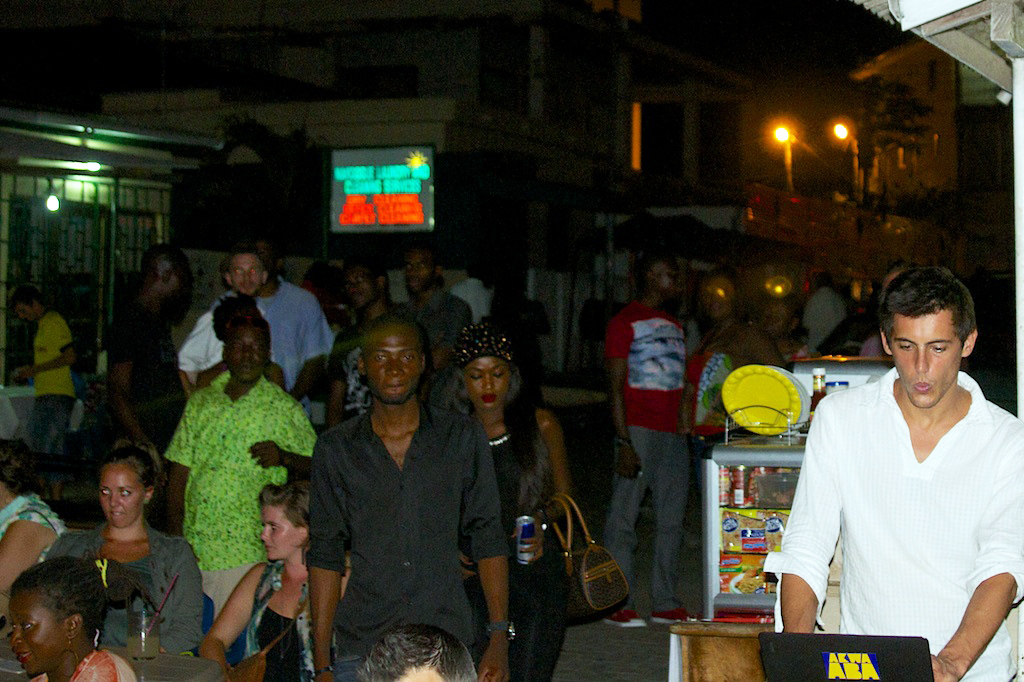
Benjamin LeBrave DJs at Republic in Accra (Eyre 2013)[/caption]
This is a facet of the new “Afropolitinasim,” and it is a refreshing change from the Accra Sean and I remember from 20 years ago, when live music was all but dead, and nightlife overall was pretty desultory in this town. At Republic that night we met the young organizer of a music festival in a Ghanaian fishing village—Busua Beach—a number of young Ghanaians who had lived in LA or Brooklyn, and a few local musicians. The scene was friendly and chill, a fine welcome (Akwaaba) indeed.
Live music is still struggling to make a comeback in Accra, but it is happening. Last night
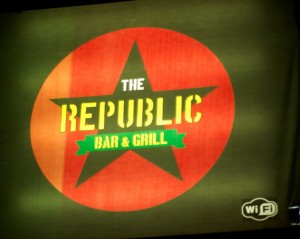
(Sunday) we made our way to central Accra to +233 Jazz Bar and Grill, where “highlife Afro jazz” legend Gyedu Blay Ambolley was holding forth with a terrific 8-piece band. Born in 1947 in Sekondi in Western Ghana, Ambolley made his name here in the 70s, fusing highlife and funk. That makes him a key figure in one of the stories we are researching here, namely afro-funk before Fela and afrobeat.
So it was reassuring to see that Ambolley is today fronting such a strong band, mostly young musicians playing all sorts of original material, from highlife to afro-funk and afro-jazz. [A lot of this music sounds like what American African music fans would call afrobeat, though that term does not seem to have much currency here. Young people talk about afrobeats--but that's a story for another day.] There were a few choice covers too, including a late-night take on Monk’s “Round Midnight,” that started off with a smoldering flugelhorn solo, and wound up swinging hard. We will learn more about Ambolley and his story, and band, tomorrow when we interview him at his house. In between sets at +233, he told us he’d grown
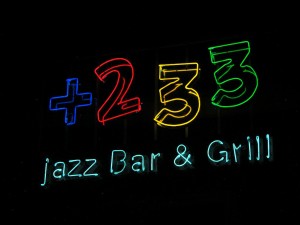
disillusioned with the decline in live music in the 80s and 90s in Ghana, and actually spent a good number of years in Brooklyn. Who knew?
Ambolley also told us how proud he was to be part of a reviving live music scene in Accra. The +233 club has live acts Tuesday through Sunday, and while the Sunday night crowd we saw was a bit thin, and evaporated by midnight, those who showed were heartily appreciative. This was already more live music than I heard during my entire 2-week stay in Accra in 1993, so the signs are good. And we’re just getting started…
